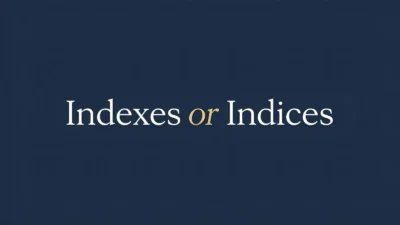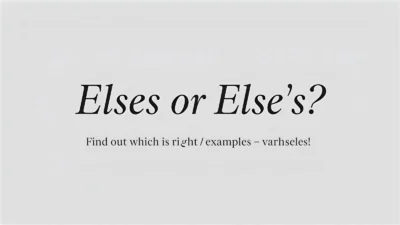Have you ever stopped while writing and wondered, “Should I write parent’s or parents’?”
You’re not alone — I’ve been there too! Apostrophes in English can be really confusing, especially when you’re talking about ownership or more than one parent.
Many students, writers, and professionals mix up these two forms and end up creating confusion in their writing. If you want your writing to look grammatically correct and professional, you’re in the right place.
In this guide, I’ll explain the difference between parent’s and parents’ in simple words, show you when to use each one, and give easy examples so you’ll never be confused again.
Parent’s or Parents’? – Quick Answer
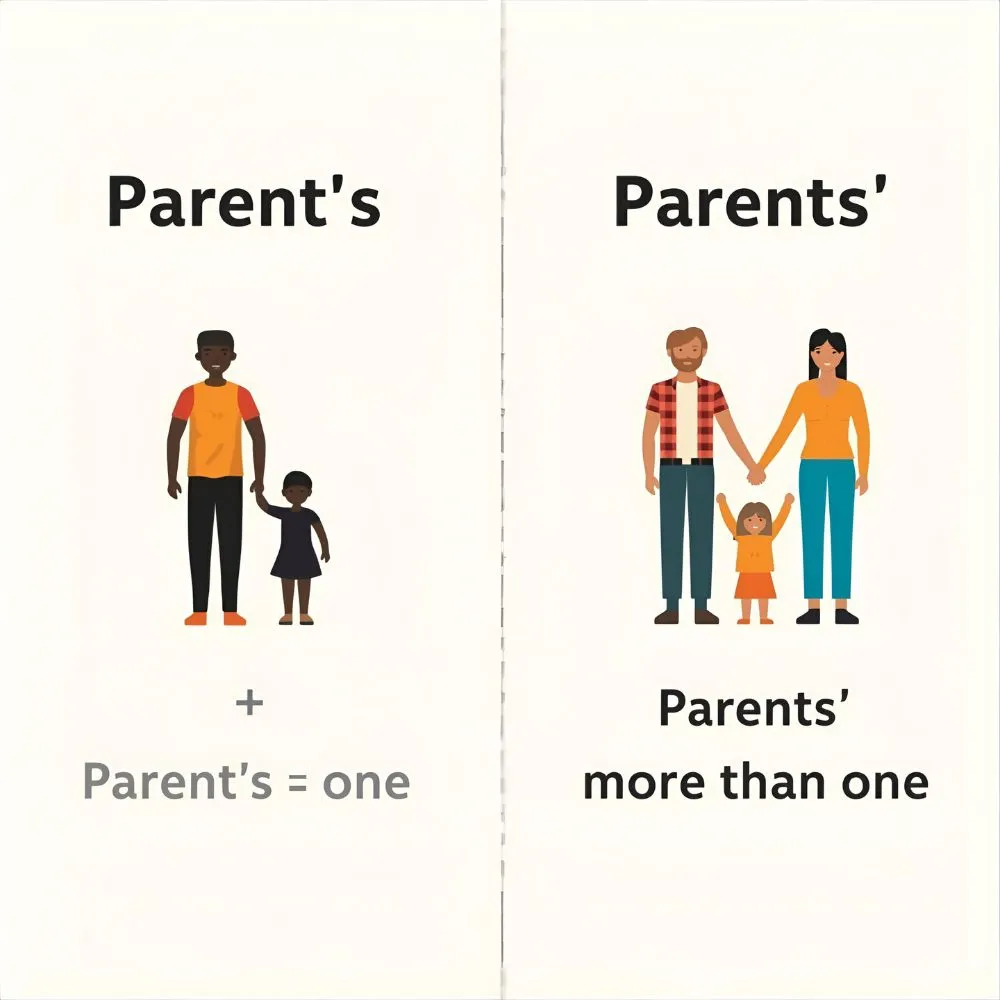
- Parent’s → Shows possession by one parent.
Example: My parent’s advice was helpful. - Parents’ → Shows possession by both (or all) parents.
Example: My parents’ house is in the city.
Think:
- Apostrophe before “s” → one parent.
- Apostrophe after “s” → more than one parent.
The Origin of Parent’s or Parents’

The confusion comes from the English rule for possessive nouns. In Old English, possession was shown by different word endings, but over time, the apostrophe was introduced (in the 16th–17th century) as a marker of possession.
- Parent’s → from singular possessive rules.
- Parents’ → from plural possessive rules.
The difference is not about British or American English—it’s about how singular and plural ownership is expressed.
British English vs American English Spelling
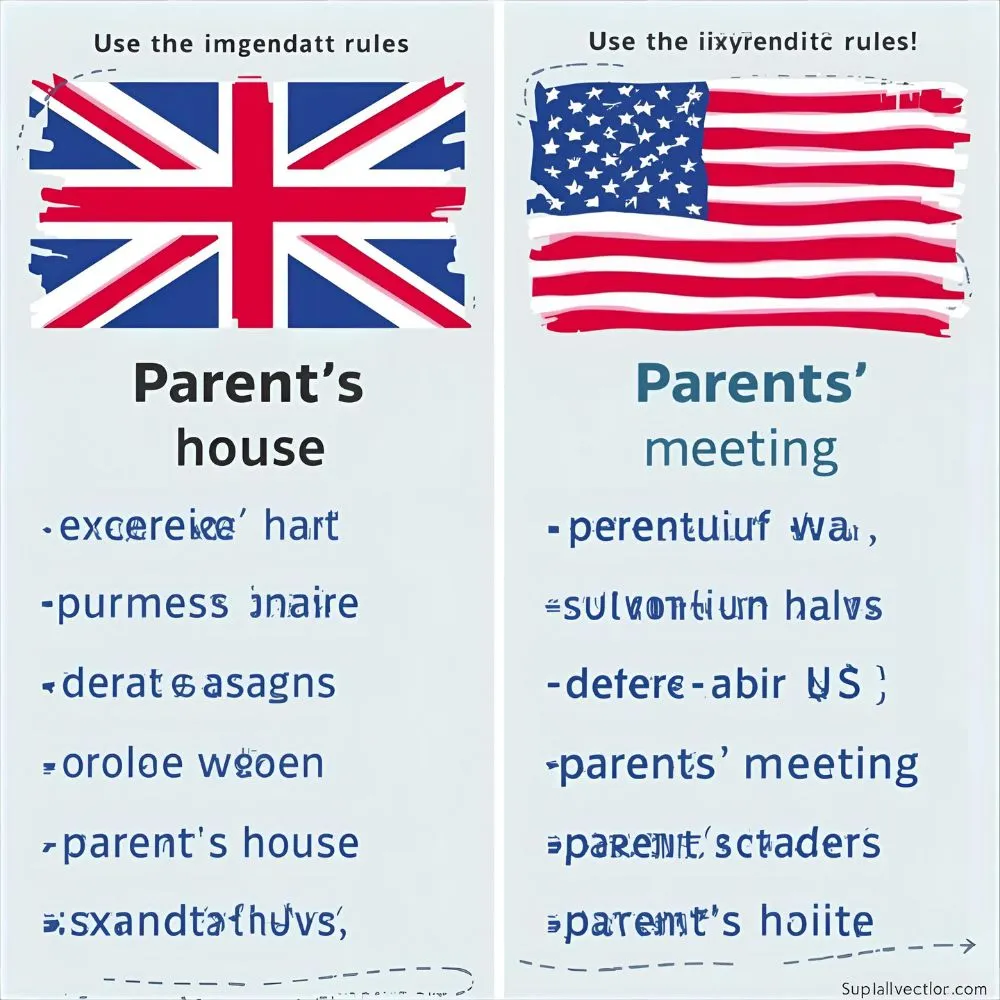
In this case, there is no difference between British and American spelling rules. Both follow the same grammar:
- Parent’s = one parent’s possession.
- Parents’ = more than one parent’s possession.
Comparison Table
| Form | Meaning | Example |
| Parent’s | One parent owns something | My parent’s job is stressful. |
| Parents’ | Two or more parents own something | The parents’ meeting starts at 7 PM. |
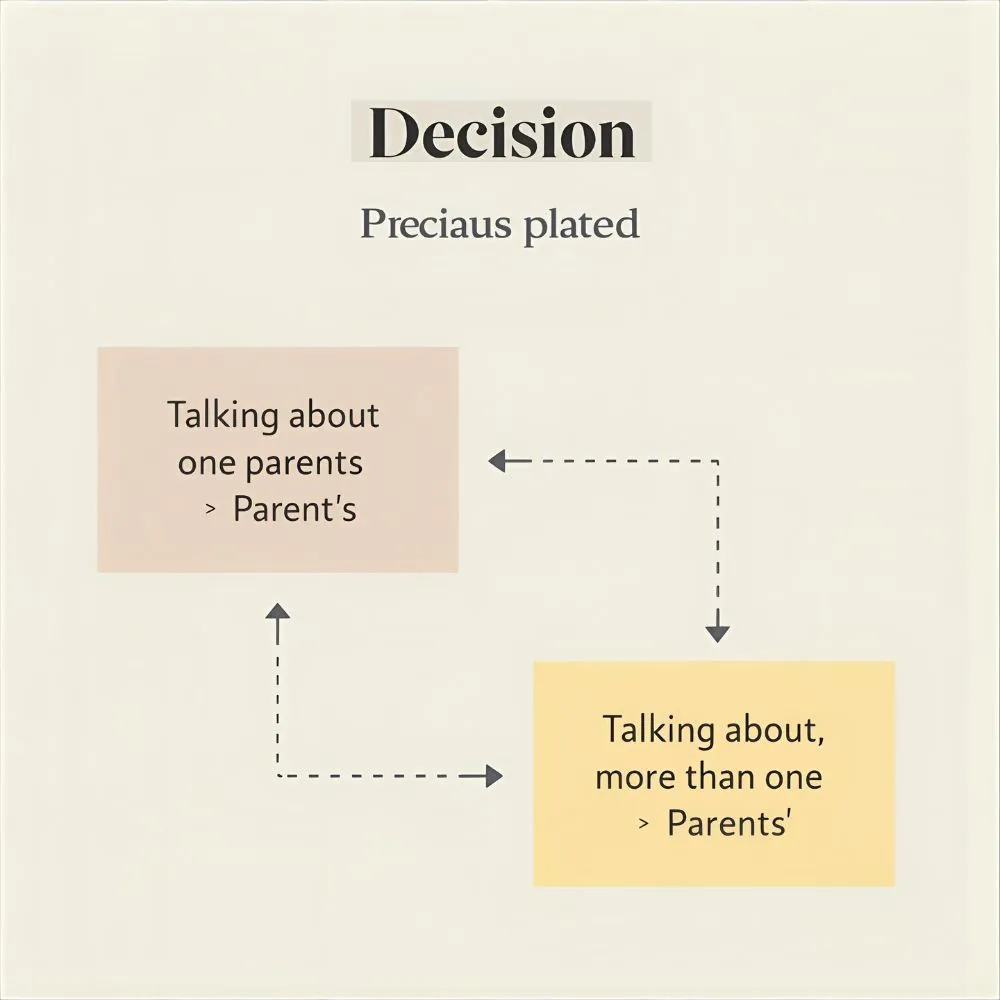
- If you are talking about one parent, use parent’s.
- If you are talking about two or more parents, use parents’.
- If unsure, check your sentence: ask “who owns it?”
👉 Global usage is the same in US, UK, Canada, Australia, and beyond.
Common Mistakes with Parent’s or Parents’
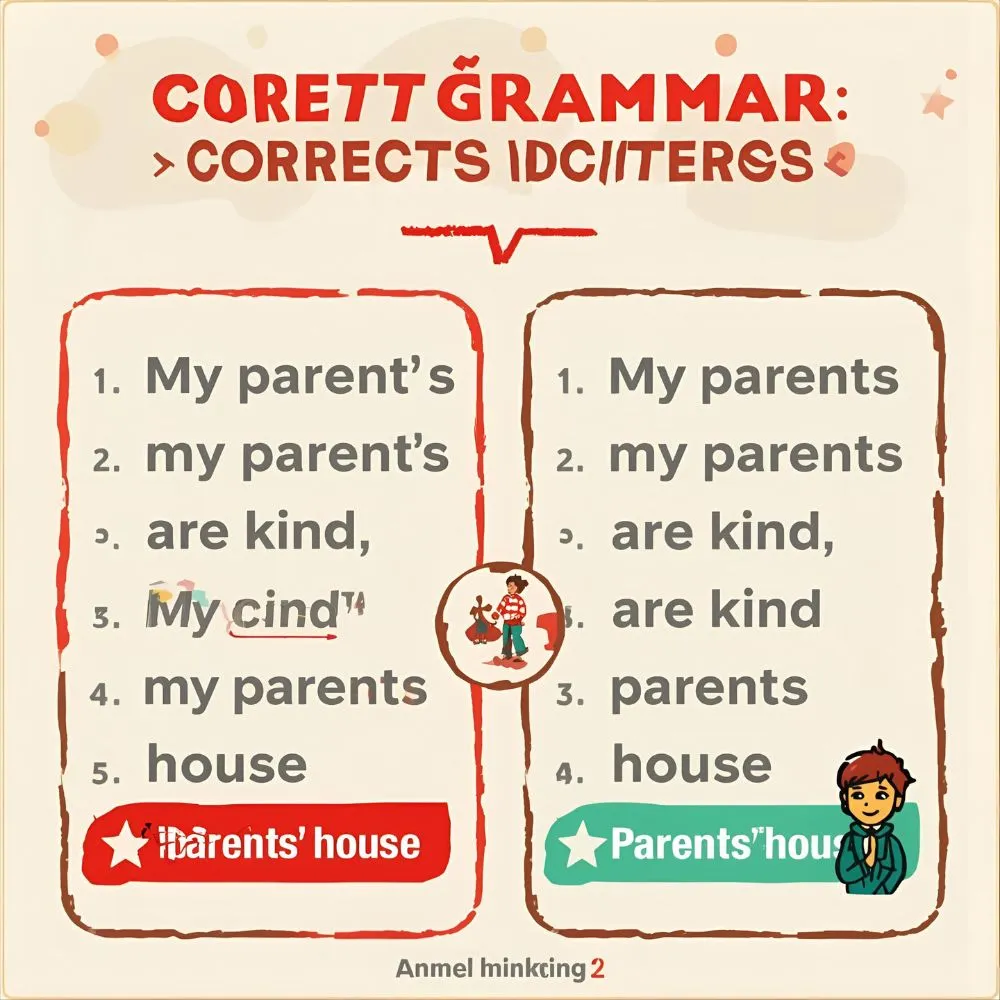
- Using parent’s instead of parents’
- ❌ Wrong: My parent’s are kind.
- ✅ Correct: My parents are kind.
- ❌ Wrong: My parent’s are kind.
- Forgetting the apostrophe
- ❌ Wrong: My parents house is big.
- ✅ Correct: My parents’ house is big.
- ❌ Wrong: My parents house is big.
- Adding an extra apostrophe
- ❌ Wrong: Parent’s’ advice.
- ✅ Correct: Parent’s advice.
- ❌ Wrong: Parent’s’ advice.
Parent’s or Parents’ in Everyday Examples
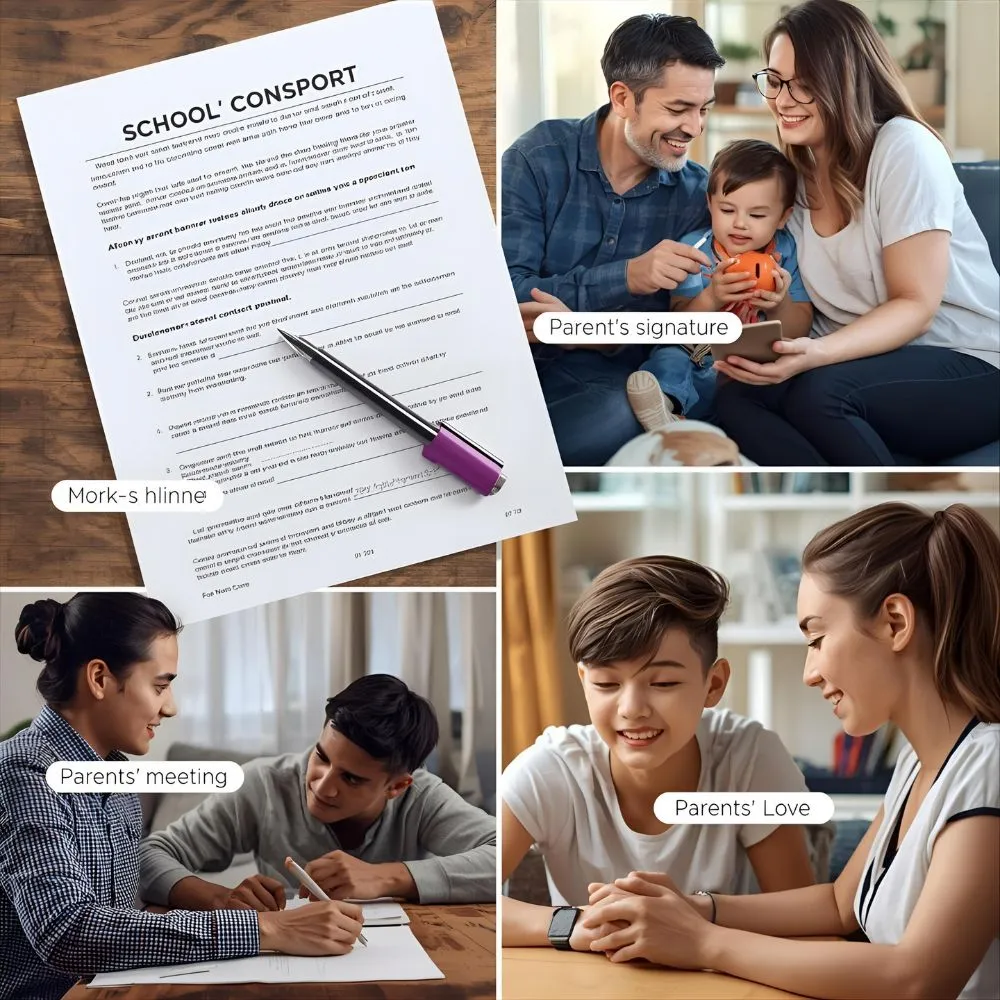
- Email: “Please sign your parent’s consent form.”
- News: “The school will hold a parents’ evening on Friday.”
- Social Media: “Missing my parents’ cooking today ❤️.”
- Formal Writing: “The parent’s responsibility is to ensure safety at home.”
Parent’s or Parents’? – Google Trends & Usage Data
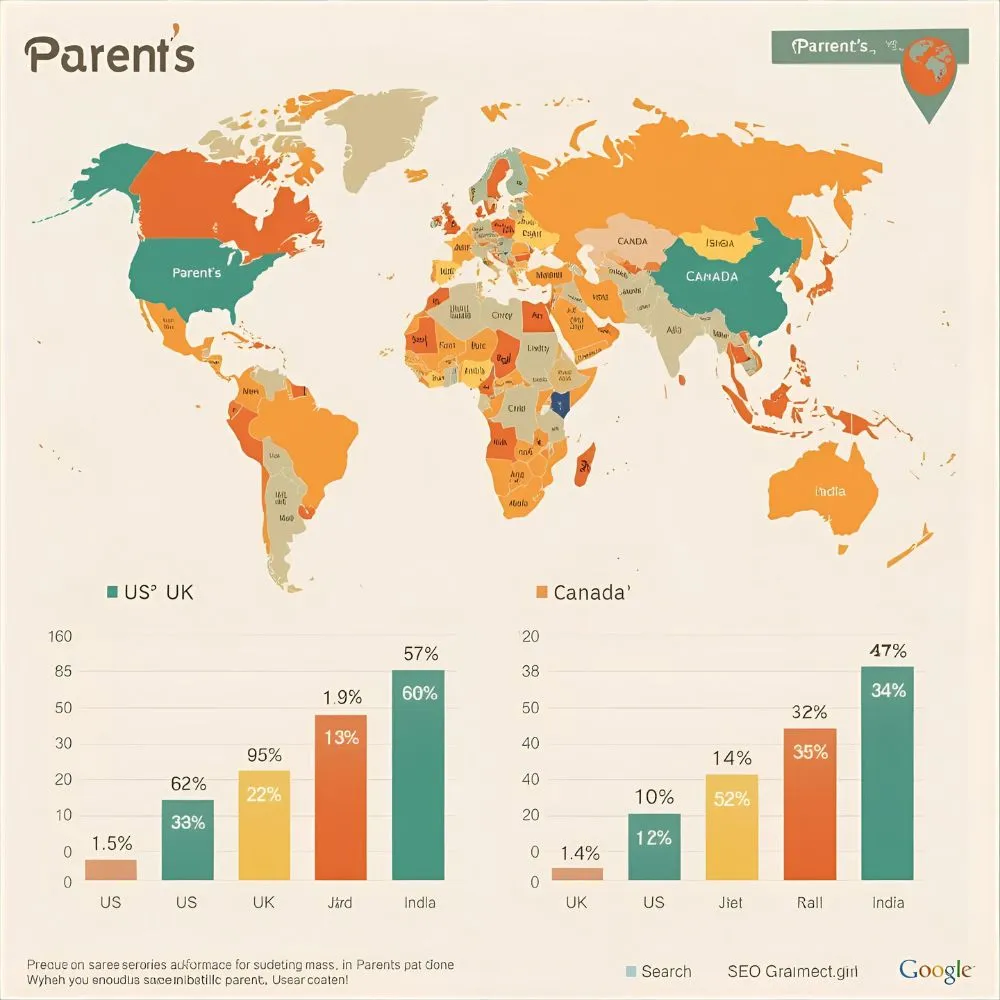
- Search interest is high among students, teachers, and professionals.
- US & UK → both forms are searched equally.
- Global usage → parents’ is searched more often, since it applies to many situations (school, family, consent forms).
Elses or Else’s : Learn the Correct Spelling in Just 2 Minutes
Comparison Table of Variations
| Variation | Correct? | Meaning | Example |
| Parent’s | ✅ | One parent owns something | My parent’s advice was clear. |
| Parents’ | ✅ | Two or more parents own something | The parents’ meeting is tomorrow. |
| Parents | ✅ | Just plural, no ownership | My parents are kind. |
| Parent’s’ | ❌ | Incorrect | – |
FAQs
1. Which is correct: parent’s or parents’?
Both are correct, but they mean different things.
2. When do I use parent’s?
When talking about one parent’s possession.
3. When do I use parents’?
When showing possession by two or more parents.
4. What if I just mean “parents” without possession?
Then no apostrophe is needed. Example: My parents are here.
5. Is this rule the same in US and UK English?
Yes, the rule is identical.
6. Can “parents’” also mean all parents in general?
Yes, like in parents’ responsibilities (meaning all parents).
7. Is “parent’s’” ever correct?
No. That’s always wrong.
Conclusion
The choice between parent’s and parents’ is simple once you know the rule: one parent → parent’s, more than one → parents’. This confusion happens because apostrophes look almost identical in singular and plural forms. Whether you’re writing in American, British, or global English, the rule stays the same. Common mistakes often come from mixing up plural and possessive forms or forgetting the apostrophe. If you are ever unsure, read your sentence and ask, “Who owns this?” That will guide you to the right choice. By mastering this small but important detail, your writing—whether in school essays, emails, or professional documents—will be clearer and more correct.


